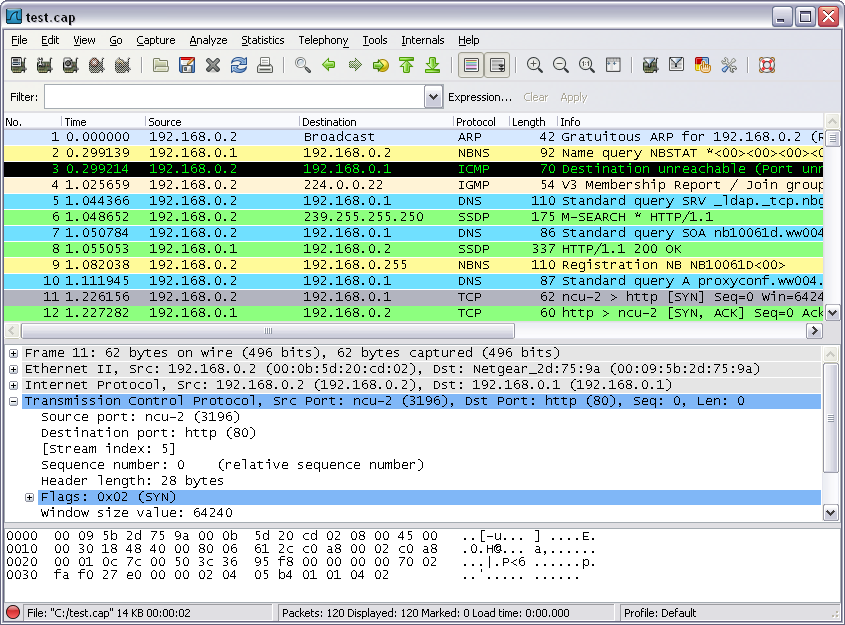
You'll find further details about the libpcap file format in the wiretap/libpcap.c and. Wireshark handles all capture file I/O in the wiretap library. The proposed file extension for libpcap based files is. Libpcap, and the Windows port of libpcap, WinPcap, use the same file format.Īlthough it's sometimes assumed that this file format is suitable for Ethernet networks only, it can serve many different network types, examples can be found at the Wireshark's Supported Capture Media page all listed types are handled by the libpcap file format. As the libpcap library became the "de facto" standard of network capturing on UN*X, it became the "common denominator" for network capture files in the open source world (there seems to be no such thing as a "common denominator" in the commercial network capture world at all). Then by running the command line tool etl2pcapng.exe in.etl out.This file format is a very basic format to save captured network data. etl file containing a Windows network packet capture into. Luckily, someone from Microsoft has created a CLI tool called etl2pcapng which does the conversion from ETL to PCAP, which can be found here –> microsoft/etl2pcapng: Utility that converts an.
:max_bytes(150000):strip_icc()/015__wireshark-tutorial-4143298-7a97f10b11e941f2b807e9d54e20b856.jpg)
One issue with Netsh is that it generated ETL files, which are not a file format that Wireshark supports. ( NOTE: With the persistent=yes it means that the traffic capture will persist after reboots and will only stop when someone runs a netsh stop command) Netsh trace start capture=yes tracefile=c:\net.etl persistent=yes maxsize=4096 Netsh can be configured using the following commands to generate a network trace on a specific Windows VM It can also be used to collect network packet traces.

In Windows there is a feature called netsh which is a command-line scripting utility that allows you to display or modify the network configuration of a computer.

Secondly, I might be working in a pretty locked down environment where I might not have access to download and install wireshark at all, and why should I since I have built-in functionality in Windows? So when you are working on a production workload and something is not right with the network on that Windows VM, what do you do? Wireshark to the rescue? well no… not quite, I wouldn’t install that on a production server since it installs WinPcap/NpCap which is an NDIS filter driver on the network card.


 0 kommentar(er)
0 kommentar(er)
